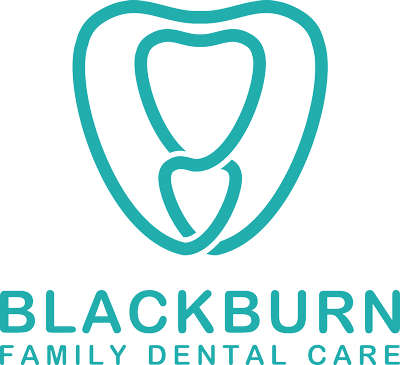Gum disease is a common occurrence in adults, with a prevalence of around 50% of adults above the age of 30, according to a recent study in the US. It is a condition where the gums become sore, swollen or infected as a natural body response to certain groups of pathogenic bacteria residing the gum tissues. A number of people will at one time or another, experience gum disease to some degree. If not treated, it can become progressively worse to the point that advanced forms of periodontitis can develop, leading to damage to the jawbone, loose teeth, drifting of teeth and opening up spaces between the teeth themselves. This is why it is very important for people to understand the causes of common gum diseases and to seek periodontal treatment at an early stage to prevent irreversible damage.
Gum or periodontal disease, is where the tissues or gums that hold your teeth in place, become “infected”. There are various signs and symptoms that should give rise to concern and you should seek periodontal disease treatment as soon as possible.
The difference between gingivitis and periodontal disease
- Gingivitis
Gingivitis is where gums become red and swollen and can bleed quite easily due to the build of bacteria in plaque. When the bacteria from food debris is not cleaned away and left in the mouth, it can interact with saliva forming a white substance known as plaque. When plaque is left for extended periods of time, it hardens and becomes increasingly difficult for you to clean. You will not suffer any pain so you may not realise you have it, but others may comment on your bad breath, which is another unpleasant symptom. At this point, there are no irreversible changes, but if not treated, sometimes gingivitis can advance to the more serious condition called periodontitis.
- Periodontitis
Periodontitis is the major cause of tooth loss in adults. If untreated, the damage will be permanent. Symptoms include red, swollen and bleeding gums, loosening of teeth, persistent bad breath and bad taste in the mouth. Pus and blood are sometimes expressed. Teeth appear to look longer as gums and bone start to recede and there can be bite changes. As the disease worsens, more bone and gum tissue are destroyed and teeth will begin to loosen even more.
What are the causes?
- Lack of a proper oral hygiene routine and build-up of plaque
One of the main causes of gum disease is not diligently caring for your teeth and gums. If allowed to remain unchecked and the teeth are not properly cleaned and flossed, the plaque builds up. Some of the bacteria in plaque can be harmful and the build-up on the teeth may initiate an inflammatory response from the host. This appears when your gums are feeling sore, swollen and often bleeding.
- Smoking
Another factor which can increase the likelihood of gum disease is smoking. This is because smoking and other tobacco products affect the blood supply of the attachment of bone and soft tissue to your teeth, thus interfering with the normal function of gum tissue cells. If you find that you have gum damage, smoking can accelerate bone loss, it also makes it harder for your body to respond to treatment.
- Systemic link
Periodontitis has also been linked to heart disease, diabetes and rheumatoid arthritis according to research. Researchers believe the link lies in the inflammatory response that is shared by both gum disease and these sorts of chronic illnesses.
- Genetics
In some cases, genetics play a role in whether an individual develops gum disease. Genetics also predispose the amount of attachment and bone around each tooth and also the immune response in different areas.
- Malnutrition
Malnutrition may also play a part, as the body lacks the nutrients it needs to keep gums and teeth healthy. Proper nutrition is required to maintain the healthy levels of enamel and prevent tooth decay so if you don’t consume the right nutrients, acid and bacteria in your mouth can take over, causing decay and possibly gum damage, as well as other oral health problems.
- Pregnancy changes
Other contributory factors are the age of a person, as gum disease does become more common as you grow older and, when pregnant, the hormonal changes that occur to women causes gums to become more vulnerable, possibly leading to inflammation and bleeding.
How can you prevent them?
Proper oral hygiene which includes the following:
- Brush teeth for 2 minutes before going to bed at night and on one other occasion during the day, preferably after eating.
- Using fluoride toothpaste which as a natural mineral helps prevent the teeth from decaying.
- Giving up smoking or better still, not start to smoke.
- Floss or use interdental brushes before cleaning your teeth.
- Regular check-ups with your dentist who can spot problems at an early stage, treat the underlying issues, and suggest lifestyle changes or oral hygiene techniques that will help control gum disease.
Ensuring that you maintain a healthy lifestyle is also important, so you need to make sure that you are eating a nutritionally balanced diet with vitamins that support healthy gums.
If you are undertaking medical treatment for other diseases, it is worth speaking to your dentist about whether the treatment could cause problems with your gums. In some cases, medications can cause an overgrowth of gums, which may appear to look like gingivitis, but is actually separate from true periodontal disease.
As you get older, you may need to alter or vary your oral hygiene routine and again on visits to your dentist, you can discuss the best options for you. For those who are pregnant, it is equally important that you make sure you undergo regular check-ups so your dentist can pick up on any concerns early on. Research also shows a higher risk of preterm low-weight babies with periodontal disease.
Get in touch with the caring and friendly team at Blackburn Family Dental Care. Our experienced and dedicated team are available for consultation in periodontal treatments.

